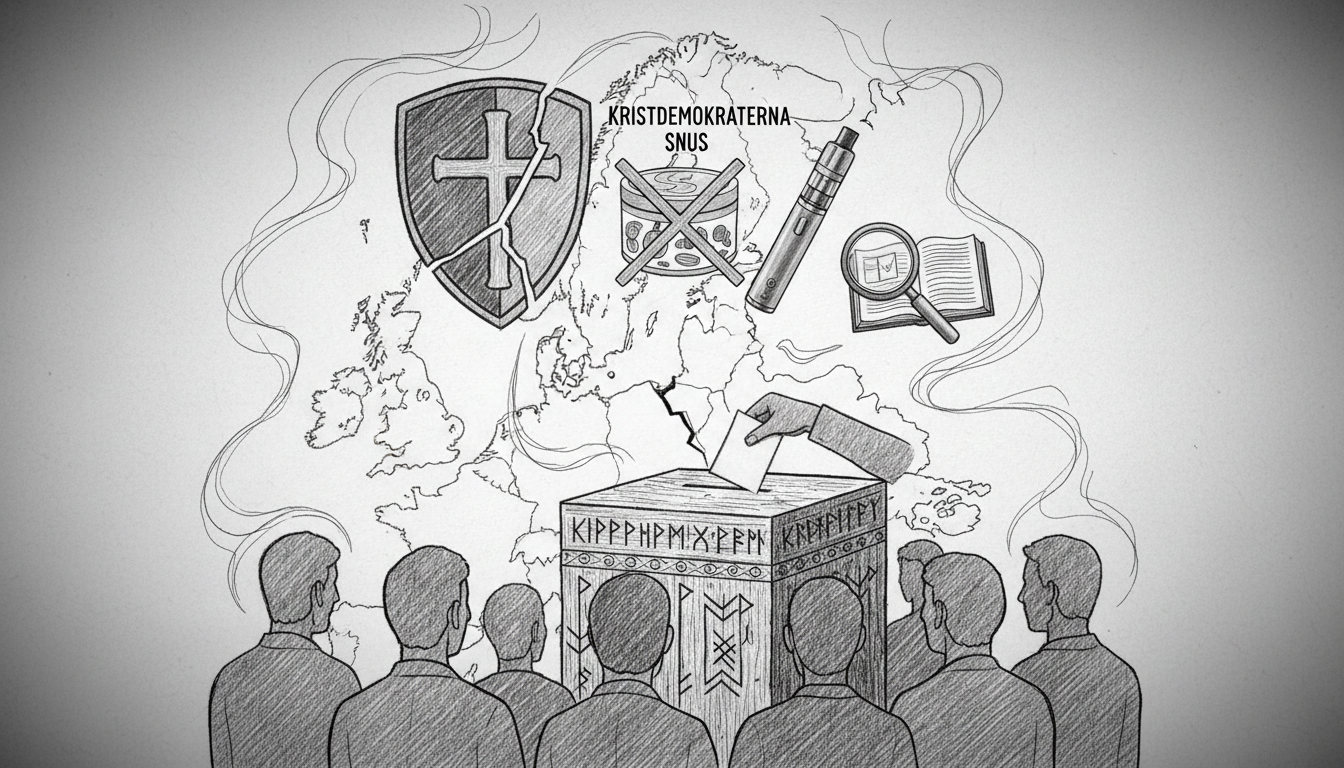The Christian Democratic party leadership in Sweden faced a major setback when their proposal to ban candy flavors in white snus and vapes was rejected. The party board had advocated for prohibiting all flavors except traditional adult tastes. They argued that candy and fruit flavors attract children into nicotine addiction.
The debate grew heated during the party's national conference. Erika Utbult, a delegate from Skåne, supported the ban. She said these products look like candy, taste like candy, and sell in candy stores. She called it an easy way to sell addiction to young people.
Critics highlighted the practical problem of defining acceptable adult flavors. Evelina Solem, a delegate from Uppsala County, pointed out the contradiction in the proposal. She noted that while Sweden often opposes EU interference with Swedish snus, the party was now proposing similar internal restrictions.
The national conference ultimately voted against the leadership's position. Delegates decided the party should instead push for stricter marketing regulations. The final decision made no mention of any flavor ban.
This debate reflects Sweden's unique relationship with nicotine products. Snus has deep cultural roots in Swedish society. Unlike other EU countries, Sweden maintains legal sales of this traditional tobacco product. The country has Europe's highest snus consumption rates but among the lowest smoking rates.
The Christian Democrats have historically taken strong positions on public health issues. Their focus on protecting children from nicotine addiction aligns with their family values platform. Yet the rejection shows internal divisions over how to balance health concerns with personal freedom.
Sweden's tobacco market faces increasing complexity with new products like white snus and vaping devices. These often feature sweet flavors that appeal to younger users. The government continues grappling with how to regulate these products effectively.
The decision has implications beyond party politics. It signals that flavor bans face significant opposition in Swedish political circles. This could influence upcoming national debates about tobacco and nicotine regulation. Other parties will likely take note of this development when forming their own positions.
International observers should watch how Sweden handles nicotine regulation. The country's approach often differs from other European nations. Sweden's high snus use coupled with low smoking rates presents a unique public health scenario. The outcome of these debates could influence tobacco policy across Europe.
What comes next for the Christian Democrats? The party must now develop alternative proposals for addressing youth nicotine use. They will likely focus on marketing restrictions and age verification systems. The internal debate reveals ongoing tension between public health goals and practical governance.

